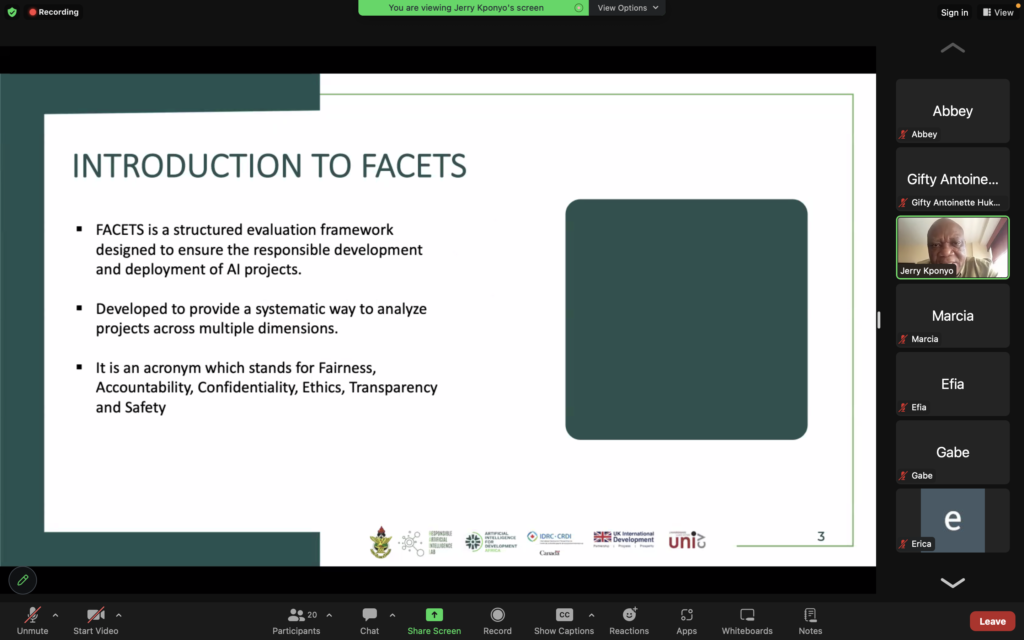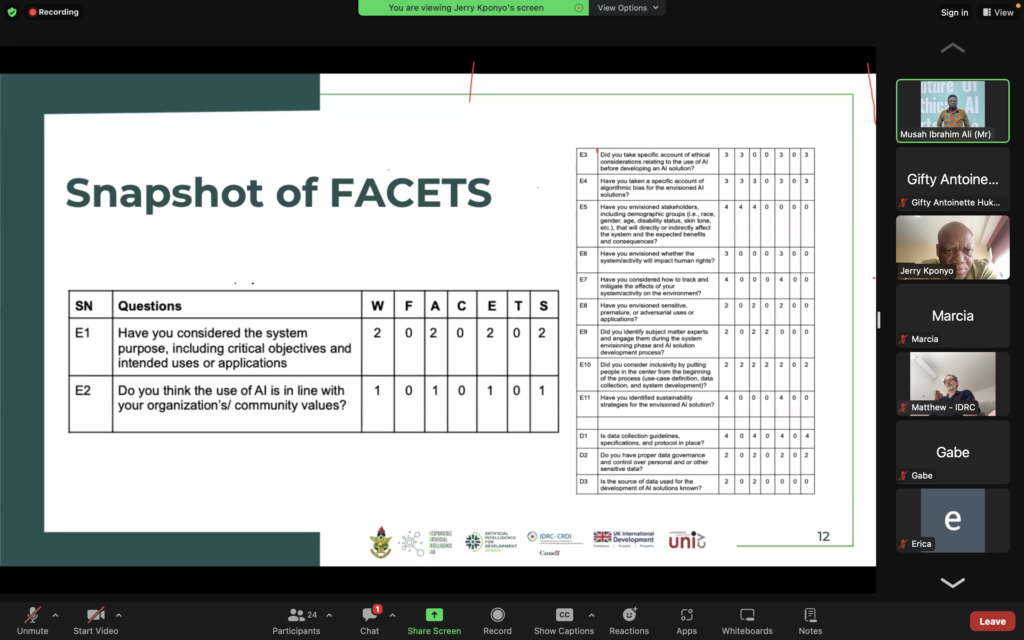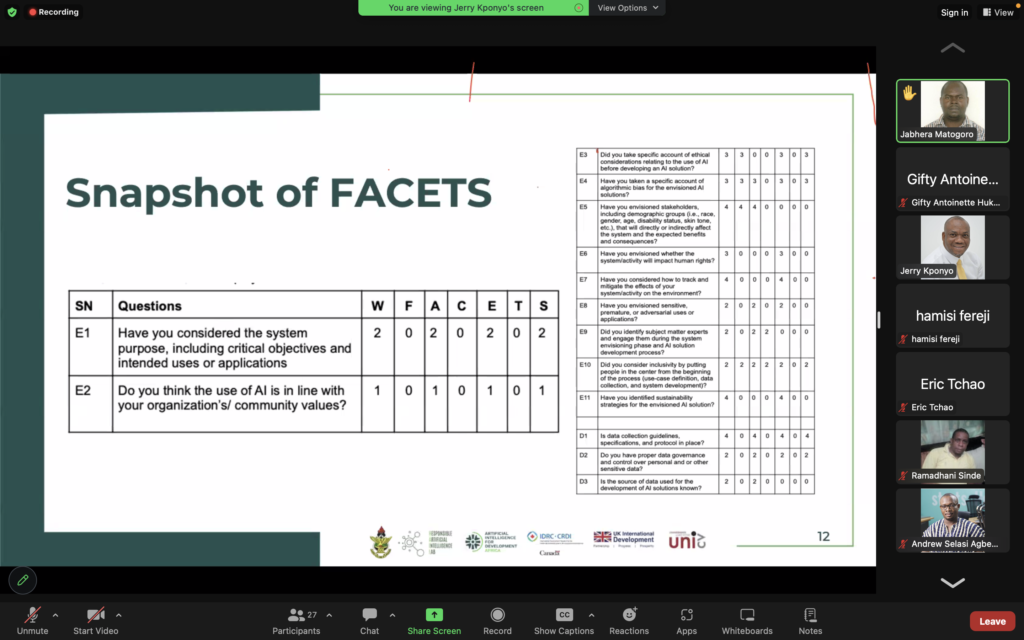The Artificial Intelligence for Development (AI4D) Network of Labs held a workshop to introduce and elaborate on the FACETS Framework, an innovative initiative promoting responsible AI development and deployment. The workshop was facilitated by Prof. Jerry John Kponyo, the Principal Investigator and Scientific Director of the Responsible AI Lab (RAIL), Musa Ibrahim, a Research Assistant at RAIL, and Fredrica Afia Birago, a Research Intern at RAIL.

Prof. Kponyo gave a comprehensive introduction to the framework. He explained that FACETS is designed to evaluate AI projects at four critical stages: Envision, Data, Model, and Deployment. Each stage includes questions that help developers assess ethical concerns and ensure responsible AI usage from conception to deployment.

Musa Ibrahim elaborated on the FACETS Scorecard Rubrics, a system that assigns a score to each stage of an AI project based on specific metrics. These stages are weighted as follows: Envision (30%), Data (20%), Model (25%), and Deployment (25%). After evaluation, developers receive a badge—green for projects that meet ethical standards and red for those that need improvement. This scoring system helps identify areas requiring further attention to ensure the responsible deployment of AI.

Fredricka Afia Birago presented real-world examples of projects that have used the FACETS Framework. These included the I-SEE Project, which is still in the Envision stage at 68%, the I-Wheel project, which is still ongoing, and the Afropalm Project, a completed project with high ratings in Data (92%) and Envision (80%). She also highlighted the role of Model Cards, which provide detailed descriptions of each evaluation stage to assist developers in assessing their projects.

The workshop concluded with suggestions for improving the framework. The facilitators discussed the potential inclusion of recommendation systems to address underlying issues and the importance of incorporating gender evaluation to eliminate bias. Prof. Kponyo reiterated the significance of the FACETS framework in providing a structured approach to assessing data bias, feature dependencies, human involvement in decision-making, and model accountability. He encouraged all labs within the AI4D network to leverage this tool for evaluating their models.